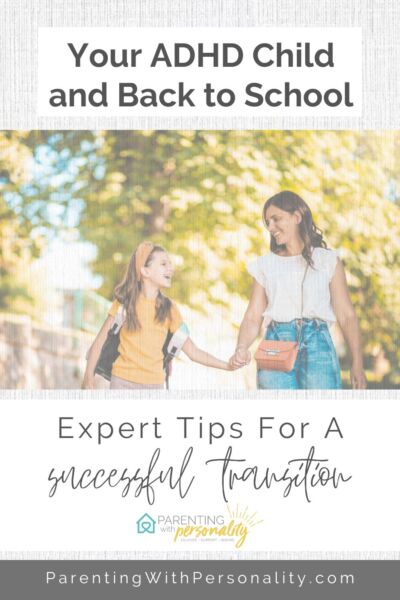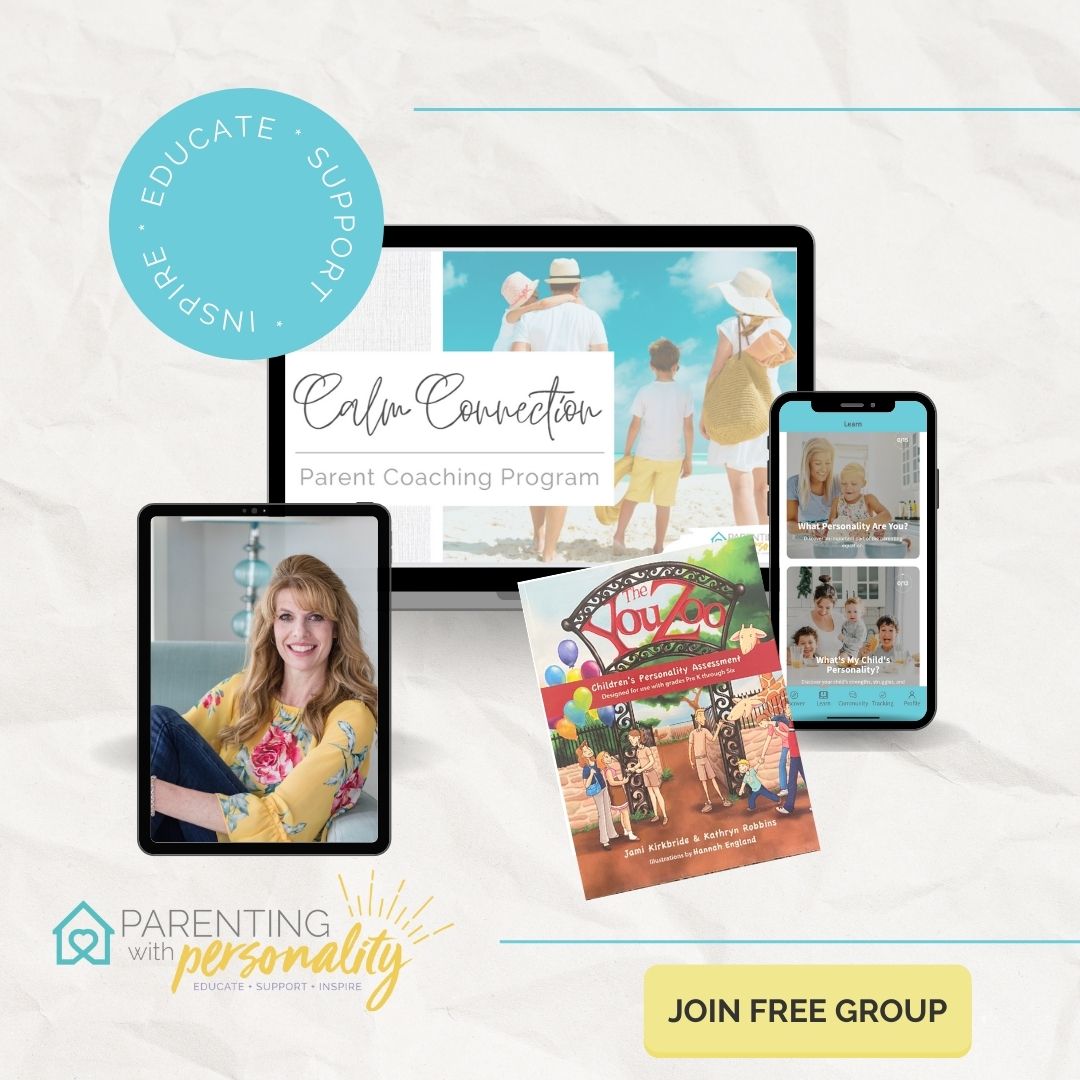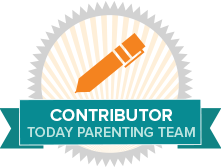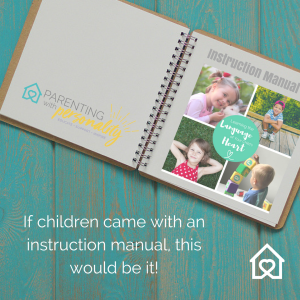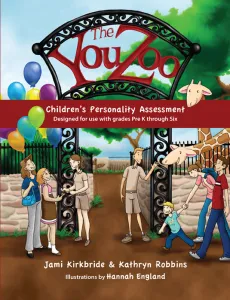Tips and Talks to Help Your ADHD Child Going Back to School
The back-to-school season can be particularly daunting for parents and their ADHD child (or other mental health disorders). While it may be a time of excitement and anticipation for many families, it also presents specific concerns or challenges for parents navigating ADHD-related needs. In this article, we will explore practical strategies and valuable insights to help parents support their child with ADHD have a successful transition back to school with confidence.
“A child’s brain is like a puzzle, and when we provide the right pieces through personalized support, we empower children with ADHD to thrive academically and emotionally.”–Mona Delahooke

Challenges of School for Child With ADHD
ADHD, or Attention Deficit Hyperactivity Disorder, is a neurodevelopmental condition that affects a significant number of children. As parents gear up for this back-to-school season, it becomes essential to understand how ADHD can affect a child’s school experience in order to understand how we might handle the struggles as we prepare. Children with ADHD often face unique challenges in the school environment, including difficulty with focus, impulsivity, organization or time management, social difficulties with peers, and more.
And while ADHD is a struggle, there can also be challenges with executive functioning. This is often part of ADHD but can also be separate issues or diagnoses. Nonetheless, these executive functioning skills can be impacted: time management, emotional regulation, task initiation, working memory, flexible thinking, and self-control, just to name a few. This overlap is sometimes where we see traits that may remind us of ADHD but have a differing issue or diagnosis instead. And this is why I mentioned other mental health disorders in the intro. Even though we will for the sake of simplicity talk about ADHD, from this point, you can also know that other diagnoses or issues could be used as well.
“Understanding that ADHD is a neurological condition, not a character flaw, is crucial in supporting these children as they navigate the school system.” Dana Abraham
Challenges and Anxieties Parents Face with ADHD Child
First of all, it’s important to understand the stress and pressure that parents can feel over school and their child’s success. Even though these fears or worries may exist with a neurotypical child, they are likely heightened with a neurodiverse child. Acknowledge that that the stress or uncertainty you feel is normal for the situation. As parents we want to see our child succeed and feel happy. When we imagine that either of those could be challenged, it is surely going to provoke some sort of emotion. That’s just part of being a good parent, right?!
Shifting from the less structured and more relaxed summer schedule back into an early morning, long-day, and busy activity schedule can create anxiety not only for a child, but a parent as well. When you take the time to name that feeling, you are one step closer to taking control of that feeling. As one child advocate puts it, “Name it to tame it!” When we take time to capture and understand our own emotions, we are better able to help our child. Maybe you’ve never thought of it this way, but you can’t really help a child control something that you can’t either!
Because of this, it is important to explore and recognize what can reduce stress and overwhelm. Which leads me to the practical tips and meaningful discussions that I encourage you to have as you prepare for the back-to-school season. There are some key individuals that will play a role in this back to school transition, and getting all the players on the same page is essential to helping your ADHD child thrive.
Vanessa Lapointe: “Rather than focusing on ‘fixing’ ADHD, let’s focus on accommodating and supporting these children in their unique ways of learning and engaging with the world.”

Communication With Child and School
Clear Conversation With ADHD Child
First and foremost, it will be essential that you and your child have open, clear, and honest communication. This can be a challenge if you are dealing with a child who doesn’t like to talk, extra words trigger, they can’t focus, or they tend to be negative. And these are not uncommon responses in children. As a result, you will need to be creative in how you have these discussions and get the conversations moving in productive ways.
If these conversations feel like a challenge with your child, I encourage you to think about ways you can engage their interest. It might be through distraction. Some children that don’t prefer talking might talk up a storm when they are building legos while talking with you. Other children might loosen up a bit while engaging in a side-by-side activity that increases perceived teamwork. They might like coloring in a coloring book alongside you. Still other children may become an open book if feeling a quality connection, so maybe you create a fun outing like an ice cream date to encourage communication.
Tip: Make a tradition of back-to-school dates with each child. Talk with them about what they are looking forward to or what they are maybe not so excited about with school. Remember to ask open- ended questions to help keep them talking and sharing. (These have been a tradition my kids have grown to love most!)

Teambuilding Talk With the Teacher
Connecting with a teacher is understandably one of the most important pieces of helping your child succeed in the classroom. Afterall, this person will likely spend even more time with your child during the weekdays than you will! If at all possible, I encourage you to get in touch with your child’s teacher as school ends in May or sometime before the first day of school. Why? Because building a strong relationship, built on teamwork and a collaborative approach, will always yield better results for everyone, especially your child.
You might even communicate early, your desire for a meeting to discuss your child’s needs and how you might develop a solid team approach. It will be key that your child perceives that parents and teacher work together and communicate! This relationship alone can make a remarkable difference in the ADHD child’s success in school. Just as you would want a teacher to respect strategies that you find useful with your child, convey open minded respect for their thoughts, insights, and ideas to try with your child. Together you just might come up with winning strategies you wouldn’t have thought of on your own.
Decide what kind of communication might benefit your child. Work with the teacher to understand what works best for them and what your child really needs. Are daily check-ins necessary or would weekly or bi-weekly updates be beneficial? Would more frequent check-ins be helpful to start the year? Decide the frequency and manner in which that communication will take place.
Tip: Create a one-page form (or this one here) that lists some fun and interesting facts, as well as some of your child’s needs. This is a great tool to coordinate communication between school and home from the start and can also be a fun way to help an anxious child prepare for a new teacher. In this way, a child can communicate what they think is special or important. Remember to keep it positive!

Seek Resources From the SPED Teacher
Your child may or may not be using SPED (Special Education) services currently. Regardless, I encourage you to make sure you’ve met and know this person in your school. Developing awareness and familiarity will help, should the need arise. Often, a child may manage reasonably well until they hit second grade. Then again, fourth grade can be another milestone for an ADHD child. The learning and educational needs and strategies differ greatly at these two points, so a child who has done well may suddenly have a change in needs.
Being mindful of this, you will want to introduce yourself and maybe even ask for information on appropriate accommodations or modifications that your child may need. Should the situation arise that you need help, you don’t want to start from square one. While it may feel scary, embarrassing, or even threatening to delve into this area, it just might be what your child needs to succeed. And this would be a key person to have in your corner should you need help!
Surprisingly, many SPED teachers are used to collaborating with parents who reject or resist many things schools try to do, so having a willing, informed, and involved parent can be refreshing for them! Remember a team approach can be essential to success. If you are needing information on the SPED journey, you may consider connecting with a special education advocate or something like ADayInOurShoes that can assist.
If you feel your child is in need of a 504 plan or IEP, this person will be the one who will help you get evaluate for that. And if you are already using SPED services, you likely understand the key role this person plays. In this case, you will want to make sure you communicate about when the IEP meeting will take place and what you might do to prepare for that.
Tip: If your child is showing great anxiety about going back to school, you might ask for a tour, and just stop by the SPED room when you are walking around. This gives you a chance to get acquainted or get their help if already working together.

Communicate With the School Counselor
Many children who have ADHD or similar mental health issues are already seeing a counselor outside of school. If so, you will want to check in with them about helping your child prepare. A counselor can be useful to discuss things that are difficult for some kids to process. They may even role play situations, brainstorm some solutions with your child, or give you some ideas about preparation that are specific to your child and his needs. This can be very valuable as you head into a new year.
If your child is not seeing a counselor, you may want to at least check with the school counselor. This is another person that can be beneficial on your team. Introducing yourself and your child is a great step to opening the door, should your child need help at school. We often expect them to know who the “safe people” are at school, should they need to talk with someone, however, we don’t always arm them with the info they need to advocate for themselves. This can be a vital piece to a child’s success, especially if their needs impact classroom behavior.
A counselor in either setting can be useful in providing an ADHD child with social-emotional skills, coping strategies, and anxiety reduction. They can be very effective in helping you as a parent feel confident in the school-related stress management for your ADHD child. Equally important, they can also help you find effective parenting strategies for ADHD children.
Tip: Find out from counselor what support groups for parents of ADHD children or parent education your school and community may have. Become involved to get the necessary support you need for this journey in parenting.

Communication With Other ADHD Professionals
Pursue an Informed Pediatrician
Taking time to understand your child’s needs from a medical standpoint (and not just behavioral) is important. Enlist the help of a pediatrician that is well-versed and up to date in their understanding and treatment of ADHD and similar mental health issues. Many aspects of mental health have changed or morphed into a more accurate understanding. Not to mention that, even the basics and foundational traits of something as common as ADHD have changed over the years. (For example: A pediatrician may have historically ruled out ADHD, simply because your child wasn’t struggling in school or hyper. Now we know that many children, especially girls may not present in this manner.)
Don’t assume that all medical professionals are created equal here. Do your homework and choose an informed and open-minded doctor who is comfortable and encourages a collaborative approach to caring for your child. Ask questions, and don’t be afraid to request referrals to specialists, a psychologist, or psychiatrist. While it may feel intimidating, you have that right and responsibility to as an informed and conscientious parent. Schools may look at your requests for help or evaluation more seriously, if you have a doctor who can verify or substantiate your concerns.
When it comes to medication, there will be differing opinions, thoughts, feelings, etc. Consequently, you will need to think and pray about what you feel is best for your child. Prior deciding, I encourage you to speak with a psychiatrist. It can sound scary if you have preconceived ideas or stigmas associated. However, just like you would see an oncologist for cancer, an orthopedic doctor for a broken bone, or an obstetrician to deliver a baby, a psychiatrist is the doctor who works with all the various medications and has the best understanding of the numerous drugs, side effects, etc.
Tip: Visit the doctor for check ups and communicate clearly about your concerns. Be prepared to document or track your child’s behavior (at home or school) should you need to consult a doctor, so they understand the concerns clearly.

Seek Clarity with a Psychiatrist
As mentioned above, it can be important to get a specialist involved that works more closely with ADHD child medication management or methods that have been effective in dealing with brain, emotions, and mental health issues. There can be confusion about the differing titles of mental health professionals. To clear any confusion, a psychologist will generally do testing and diagnosing, but can not prescribe medications. A psychiatrist may do testing in addition to prescribing medications. They would have a very good working knowledge of medications, strategies, and treatments that may be the best fit for your child’s unique struggles, symptoms, or responses to medications.
Finding a good fit for medications can be a challenge. Unfortunately, some parents try medication for their child but when it doesn’t help, they assume medication is not an appropriate avenue for help. It is important to track symptoms and responses to medication while trying them and then conferring with a psychiatrist about the changes you noticed. It can take time and patience to find a good fit. A large percent of children reap the benefits of a medication that fits their body and needs well.
Parents often report vast differences in impulsivity, focus, anxiety, emotions, behaviors, energy, and even in handwriting or skills exhibited in the classroom setting. You may or may not choose this route for your child, and that is a very personal decision. I do highly recommend at least speaking with a psychiatrist before making that decision. Know what the pros and cons might be. Whether you choose medications or not, a psychiatrist may be a key part of your team should you need to enlist services at school to help your child be successful.
Tip: Ask questions, do your research, and know what options might be available for your child and their distinct needs. You know your child better than anyone. Don’t be afraid to ask your doctor to look into options they don’t present.

Communication to Help Family and Friends Understand ADHD
Support and Educate Siblings
It’s no secret that having a child with ADHD or other mental health diagnosis impacts everyone in the home. Siblings are often the closest peers or friends a child with ADHD will have. Siblings of ADHD children have a unique experience of growing in empathy and understanding if we lead the way appropriately. Conversely, they will likely experience a great deal of stress and struggle with some of the behaviors that increase stress and emotion in the home and relationally. You as a parent have a very influential role in how your other children perceive, understand and assist your child with ADHD.
Moreover, it will be key that you keep communication open with your other children. Have you had discussions with them about ADHD? Do they understand things that may challenge the ADHD child? Do they see and understand that the ADHD child has some incredible strengths (ADHD does not and should not be assumed to be a negative thing in your family) and unique wiring? Help them understand how they can help and support their sibling as needed, as well as understand those things they can do super well, powered by a busy ADHD brain.
Likewise, it will be important to offer these siblings the understanding and support they need to navigate the journey. They will likely be called upon to adjust, flex, compromise, and understand when it feels difficult. Remind them that you see them, understand them, and are there to help them too. You have enough love and energy for all of them, but don’t just assume they know and feel that. Offer verbal reassurance as well as your gratitude for the times they do give and flex.
Tip: If you haven’t already, have that important discussion that helps your children understand the wiring differences they have. Set the stage for them to not only understand but also appreciate each other’s personality, strengths, and skills.

Coordinate Strategies with Co-Parent/Spouse
As you might imagine, the stress of having a child with ADHD or other mental health issue, can take a real toll on a marriage or relationship and create further conflict for divorced or co-parenting parties. Parenting together through these struggles can divide or damage even further if you don’t purpose to get on the same page and learn for your child’s sake. Likewise, it is vital that parties involved have a thorough understanding of ADHD and the implications of it for their child and family. Viewing it as a behavioral or parenting issue will never serve the parties or child well. It is a neurodevelopmental condition and needs to be viewed as such.
Children deserve to have educated and informed parents. If you aren’t educated and informed about your child’s ADHD symptoms, struggles, or strategies that are effective, it is imperative that you change that. Working with a child who is intense, challenging, or struggling can be quite demanding and exhausting even when parents are on the same page. For the sake of your child, try to find common ground so the child can know what to expect and count on. This will take some shared responsibilities, coordinated strategies, and effective communication.
Your child will function best when you are calm, clear, concise, consistent, and compassionate. Find things that you can both work to keep consistent (especially as it relates to routines, rules, consequences, and electronic use, since these tend to be the worst trip-up issues). The unexpected can be a real trigger for a highly sensitive, intense child. Let your child feel continuity in how his parents know, understand, and deal with him. The united and supportive approach is what your child needs and deserve, especially as they transition into the start of a school year.
Tip: Preparing for school may bring about some real stress for your child. You might consider having a huddle with your child and parents together to talk about what they need going into this big transition. Listen and respond to your child with care and empathy.

Explain ADHD and Child’s Needs to Extended Family
You wouldn’t imagine how often I hear people in the Calm Connection Coaching program talk about the stress that extended family bring to the situation via harsh judgment, lack of compassion for their child’s needs, and lack of help through emotional or practical support. This makes parenting feel even more distressing when those you might perceive to be the ones who would care most, are clueless. Clearly, you can see the value in family support systems, and the hurt that happens when it doesn’t exist. And as you might imagine, there can be great value in educating them.
While it might feel futile to do so, there may be inherent value in them knowing what your child’s condition means to his emotions, behaviors, strengths, and relationships. Express how it might exhibit in your child. Again, it is imperative that you present your child’s issues carefully, so they can learn to accept and appreciate that it’s not a bad thing, it is just different and can at times be challenging. Be sure to note those positive attributes as well. Getting extended family on the same page can bring about a new understanding and refreshing support system as you prepare to start school, get together for family gatherings, or celebrate holidays together.
Tip: Take the risk to communicate about ADHD as a neurodevelopmental condition that affects your child and whole family. Let your extended family know the steps you are taking to manage the diagnosis, issues, and parenting for your child’s best interests.

Open Communication About ADHD With Other Parents
As mentioned, support is an essential element when parenting a child with ADHD (or other mental health diagnoses). As your ADHD child prepares to go back to school, you may find this season to be very overwhelming and anxiety producing. Finding support from other parents experiencing similar things can be validating and helpful. Sometimes just hearing that what you are experiencing and feeling is “normal” can help diminish the feeling that “it’s just you” or that you are “all alone” in this.
Connecting with other parents can give you much needed education, support, and inspiration. Truthfully, what you learn in a group of educated and supportive parents can be phenomenal! You might check out ADHD support groups on Facebook or the Parenting With Personality support group!
I witnessed this support myself when we first got a diagnosis. This is also an amazing aspect of the Calm Connection Coaching Program. I see parents supporting and encouraging each other! Finding these support systems with other parents can provide you with invaluable input and insights. In fact, it can be a fabulous way to build in some self-care. So, if you find that self-care is not something you’ve got figured out, you might consider this as a great avenue of scheduled and consistent self-care.
There are also other parents you may need to check with. Contrary to parents who “get it” will be those who don’t understand ADHD, your child, or mental health in general. While it may be tempting to just avoid such issues (or people in some cases), I suggest you learn to speak up and speak out! This is how you will help others in your child’s life understand him and mental health issues better. If you feel ill prepared for this, you might connect with a counselor or parenting coach to gain the information that would be helpful to educating others. Be prepared to explain ADHD and answer questions, so you can help others view your child in a more positive fashion.
Tip: Just as you may feel stress or anxiety talking with other parents, your child may feel that with his peers as well. Roleplay how and what he can communicate about his ADHD with confidence.
Most Important Communication About Your Child With ADHD

Grasp God’s Goodness and Guidance
When your faith is an important aspect of your life, then without a doubt, the most important check-in happens with you and God. Obviously, no circumstance in your life takes God by surprise. He knows your child inside and out. He knit your child together and is keenly aware of not only the number of hairs on his head, but his skills, abilities, and struggles as well. God also knows your heart. He gave you the ability to think and feel and holds each of your thoughts and feelings with care. He wants you to cast all your worries and cares on Him.
That being said, don’t forget to check in with Him. You can find great guidance, strength, and comfort when you entrust your worries about this school year and your child to Him. Spend time talking to God and don’t feel like you have to hold back. After all, He knows what you are going to say before you even say it. He can handle your fear, worry, intense emotion, doubts, anger, and everything in between. Certainly, He will take care of you…and your child too. And He has promised to equip you for this journey. Seek his guidance.
Remind your child that God created Him in a marvelous and wonderful way. All of his skills, abilities, and even struggles are things God has promised to use for good when we love Him. Pray for your child and with your child about heading into the school year and all the worries he may have. Hearing your words may help him recall those words when he feels the need to call out for God’s help, protection, and provision.
Tip: Journal a prayer for your ADHD child going back to school. Post the prayer where you can see it often and don’t underestimate the power of prayer and God’s care.

In conclusion, I just want to emphasize the importance of reducing your stress and overwhelm as you prepare to send your ADHD child back to school. This season can indeed be stressful and difficult, but implementing self-care, enlisting support, and coordinating a team of individuals to help during time of stress, duress, or transition can be invaluable. You, as a parent, have the skills you need to help your ADHD child head back to school with confidence, knowing you have these supports in place. You don’t need to travel this road alone.
You can navigate challenges and do hard things. Knowing that you model this skill for you child can be a great motivator, right?! You are a good advocate. You know your child well…better than anyone. And you’ve got this!
Remember that reducing stress and overwhelm is essential for your ADHD child’s successful back-to-school transition. If you need extra help or guidance, I am here to help! If you’ve never experienced the help of a parent coach, perhaps you’d like to find out what it’s like. For personalized guidance and parent coaching, check out our Calm Connection Parent Program. Learn more about the resources and support that are waiting for you!
Join our Parenting With Personality Facebook Support Group to connect with like-minded Christian parents and gain valuable insights.
Article-At-A-Glance:
- Foster open communication with your child through engaging activities and back-to-school traditions.
- Build a strong relationship with your child’s teacher, emphasizing teamwork and collaboration.
- Connect with the Special Education (SPED) teacher and discuss accommodations or modifications if needed.
- Seek assistance from counselors, in and/or out of the school setting, for social-emotional skills and anxiety reduction.
- Consult with pediatricians and psychiatrists for comprehensive ADHD management, including medications and treatment options.
- Support siblings by promoting empathy, understanding, and appreciation for their unique strengths as well as the ADHD sibling.
- Maintain a united and supportive approach with your spouse or co-parent to ensure consistent parenting strategies.
- Educate extended family members about ADHD and its impact, fostering understanding and compassion, and perhaps practical help that’s needed.
- Find support from other parents facing similar challenges and educate those who may not understand ADHD.
- Prioritize faith and seek guidance, strength, and comfort from God through prayer and trust.
I’m here for you!
XX,

P.S. Needing some resources to help you out? I’ve got two great tools ready and waiting!
Looking for some fresh strategies for managing a child who experiences frequent meltdowns? If you are overwhelmed with the struggles of an intense, challenging, or highly sensitive child, you will want to get your copy of the Quick Start Guide for Managing Meltdowns– Calming Emotional Chaos Without Crushing Connection. This will get you started in your journey to understanding your child’s needs and how you can navigate the high emotions and challenging behaviors effectively.
Did you know Parenting With Personality has an APP? It’s true! You can download the app from Apple Store or Google Play. There is a free course on there that you might appreciate as your busy summer draws to a close. Five Days to A Refreshed Mom is just the tool to help you refresh, regroup, and refocus for the year ahead! Check it out today! Also on the app, you will find some quick and easy personality courses, some free printable resources…and so much more! The app is free, so go check it out today!

With expertise, and wisdom gained from raising seven wonderful children, and a background in counseling, Jami, a dedicated parent coach, speaker, and author, offers valuable insights and practical guidance to empower parents on their unique journeys of raising children. Founder of Parenting With Personality and creator of Calm Connection Parent Coaching Program, she equips parents with the tools and strategies they need to foster a better understanding and meaningful connection with their little ones. As a regularly featured guest on Channel Mom Radio, her relatable stories and humorous anecdotes bring laughter and inspiration to listeners, making parenting an enjoyable and fulfilling adventure. Join Jami on this incredible journey and discover a world where connection, laughter, and growth abound, even in a bustling and busy household. Her writing has been featured with MOPS International, CBN.com, and Today Parenting.

